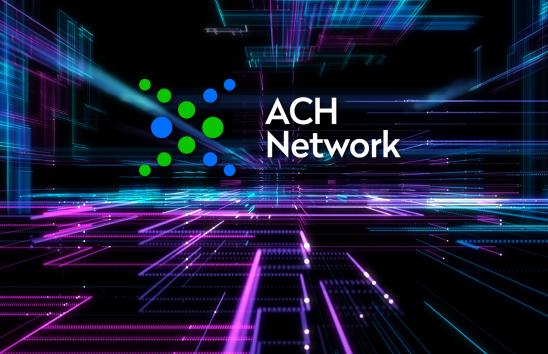May 19, 2021
International ACH Transactions FAQs
International ACH Transactions (IAT) are more common every year, so it’s critical that your financial institution stays up-to-date on secure and efficient IAT processing. For more information return to the dedicated IAT resource center or jump to:
Origination Receipt/Exception Processing and Returns OFAC Compliance and Rules Enforcement
General
Understand the IAT definition, communicate with your customer on the destination of the transactions, and understand your customer’s business.
Military Bases, Embassies, etc. are considered under U.S. jurisdiction so the transactions are considered domestic and will not require the use of IAT.
IAT does not change other regulations and rules that pertain to ACH transactions today. For example, RDFIs have Reg E obligations for consumer accounts regardless of where the entry originates
Yes, the U.S. consumer protections applied to the PPD and all consumer ACH applications apply to all transactions using the IAT SEC code. Parties outside of the U.S. are bound by laws of that country.
There is only one SEC code for International ACH Transactions and it is to be used for consumer and corporate transactions. The current consumer protections under Regulation E apply to all transactions.
A Foreign Correspondent Bank is a Participating DFI in a foreign country that holds deposits owned by other financial institutions and provides payment and other services to those financial institutions.
A Gateway Operator can be either an ACH Operator or a Participating Depository Financial Institution, as defined by the Nacha Operating Rules, that acts as an entry point to or exit point from the U.S. for ACH payment transactions.
The term Gateway Operator is a defined term in the Nacha Operating Rules. To become a Gateway Operator a financial institution or ACH Operator must originate ACH entries into or out of the U.S. to other countries. The decision to become a Gateway Operator is a business decision that should be considered by senior management. Some things to consider are establishment of a correspondent relationship in the receiving country; understanding the rules of the receiving country, formatting issues, settlement procedures and a thorough understanding of the risk associated with this business model.
In the Nacha Operating Rules, “Person” is defined as a natural person or organization.
While BSA only requires Travel Rule information when a funds transfer exceeds $3,000, the ACH Rules require this information for all IAT entries.
Origination
A financial institution can contact the Federal Reserve to participate in their FedGlobal service or U.S. bank that is offering this service for correspondent banks. Corporate originators need to talk to their financial institutions to determine if the service is being offered and work with the relationship officer to determine the service enrollment procedures.
Yes, an ODFI should have an agreement with a Gateway Operator to originate IATs.
The Transaction Type Codes are generic enough they should easily translate to other payment and messaging systems.
IAT entries may be sent to demand, savings, general ledger, and loan accounts for live entries, pre-notes and returns. Zero dollar IAT entries may be sent to demand and savings accounts, but should not be sent to general ledger or loan accounts.
Yes. An IAT pre-notification entry must include the seven mandatory addenda records and be screened for OFAC compliance. While the use of the pre-note is supported with the IAT, please be aware that the concept of pre-notes is not supported in most countries around the world and in most cases you will not receive a response to your pre-note.
The ODFI should work with their Gateway Operator to understand the rules and requirements of the foreign country they are working with.
Yes, but the reversal would be handled on a best effort basis. The receiving country may not support reversals.
That decision will be made by the parties to the transaction and is not within the scope of the IAT changes or the Nacha Operating Rules.
Receipt/Exception Processing and Returns
Yes, any U.S. RDFI could receive an IAT.
No, the RDFI does not need an agreement with a Gateway Operator for IAT.
No, the IAT is not an optional SEC code.
An RDFI can only recognize international transactions if properly coded as IAT.
Yes, IAT is the only SEC that requires the entry detail records and addenda records to be reviewed.
The RDFI should screen all IAT transactions prior to posting. If there is a suspect item in the file the item must be reviewed and cleared prior to the posting of the suspect item.
his is an entry that appears to be a positive SDN hit but after investigation it is determined that the party is not the party on the SDN list
No, the entry must be properly handled in accordance with OFAC requirements.
Yes, there is no change in the ACH Rules regarding processing of stop payments.
The IAT can be returned for specific reasons outlined in the ACH Rules, but it cannot be returned or rejected solely because the RDFI does not want to process IAT entries.
While an RDFI may not reject an entry solely because it is an IAT, an RDFI may follow proper procedures to return an IAT if their customer claims it is unauthorized and the entry does not contain a positive SDN hit.
What if the research takes longer than the return time frame but the RDFI needs to return the entry?
Article One of the Nacha Operating Rules allow the RDFI time to investigate a potential OFAC violation.
The Return Reason Codes in the R80 series are for use only by Gateway Operators.
There are no return reason codes that are blocked from use with IAT, but the Dishonored Return and Contested Dishonored return codes are not allowed for use with IAT entries.
IAT entries use the same return timeframes as other ACH Entries under the Nacha Operating Rules.
For an item originated in the U.S. and sent to another country, if the item is returned the amount of the transaction may be different than the amount of the original entry.
The return timeframes have not changed for IAT processing under the Nacha Operating Rules.
The return timeframe for outgoing IAT entries is determined by the receiving country and will vary by country.
No, automated dishonored returns are not supported with the IAT SEC code. Any request for dishonor (or contested dishonor) must be handled outside of the ACH Network.
This function is supported with the Nacha Operating Rules, but check with your correspondent banks to see if they support the process.
Yes, this code is necessary to identify IAT Notifications of Change. Please refer to the most recent version of the Nacha Operating Rules for available change codes and formatting requirements.
No, automated dishonored returns are not supported through the ACH Network. Any request for dishonor (or contested dishonor) must be handled outside of the ACH Network.
An RDFI has Regulation E statementing requirements regardless of where an entry originates. If an IAT entry has an underlying SEC Code identified in the Transaction Type Code Field, the RDFI should provide the contents of the Payment-Related Information field on the Receiver’s bank statement.
Remittance information will be required upon the request of your customer and must be provided by the opening of business on the second banking day following settlement.
No, the only information from the addenda records that needs to be provided on the customer’s statement is located in the Payment-Related Information Field of the addenda record for remittance information. This information needs to be provided when certain secondary SEC codes are included in the Transaction Type Code field of the first addenda record.
If a secondary SEC code is included in the Transaction Type Code field of the first addenda record, it may indicate that the IAT is an international variation of a domestic ACH application. If it is, the contents of the Payment-Related Information Field of the addenda record for remittance information must be provided to the consumer customer.
While the IAT does not require special statement or disclosure language, the RDFI may need to pull information for the statement from a different location in the ACH entry (see questions above).
OFAC Compliance and Rules Enforcement
Yes, but only the U.S. entities are subject to the National System of Fines.
No, the National System of Fines applies only to U.S. financial institutions.
There are additional warranties and liabilities involved with IAT transactions for the Gateway Operators.
The Office of Foreign Assets Control of the U.S. Department of the Treasury administers and enforces economic and trade sanctions based on U.S. foreign policy and national security goals against targeted foreign countries, terrorists, international narcotics traffickers, and those engaged in activities related to the proliferation of weapons of mass destruction. OFAC acts under Presidential wartime and national emergency powers, as well as authority granted by specific legislation, to impose controls on transactions and freeze foreign assets under U.S. jurisdiction.
No, you can make a business decision to outsource your OFAC screening requirements but you CANNOT contract away your liabilities.
As part of its enforcement efforts, OFAC publishes a list of individuals and companies owned or controlled by, or acting for or on behalf of, targeted countries. It also lists individuals, groups, and entities, such as terrorists and narcotics traffickers designated under programs that are not country-specific. Collectively, such individuals and companies are called "Specially Designated Nationals" or "SDNs." Their assets are blocked and U.S. persons are generally prohibited from dealing with them.
This link https://home.treasury.gov/policy-issues/financial-sanctions/specially-designated-nationals-and-blocked-persons-list-sdn-human-readable-lists to the OFAC website will allow financial institutions search lists and sign up for updates.
Yes, the OFAC Screening Indicator is a tool to help alert the RDFI to a possible OFAC hit, but the RDFI must still screen the entry and is responsible for investigation of any possible hits.
No, the ACH Operators will do no OFAC review of the IAT transactions. The Gateway Operators may review the transactions, populate the OFAC Screening Indicators and pass the items to the RDFI for review and investigation.
The Gateway Operator, the Originator, the ODFI and the RDFI must screen all IAT transactions for OFAC compliance.
There are civil and criminal penalties that vary by OFAC sanctions programs.
You should follow the OFAC Compliance Policy guidelines that your financial institution has established.
That is a business decision of your organization; it is strongly recommended that your organization examine ALL incoming IAT transactions for OFAC compliance. While a financial institution may contract with other organizations to complete the actual screening of the transactions, OFAC is very clear that an organization may not contract away their OFAC liability.
While not a service offering, the Federal Reserve acting as a Gateway Operator will screen IAT transactions that are processed as part of their FedGlobal ACH service, but will not be screening IAT transactions as an ACH Operator. EPN offers a value-added service for sanctions screening of eligible items for their processing customers for origination and receipt of IAT transactions. EPN will not be screening IAT transactions that flow through their system as an ACH Operator.




